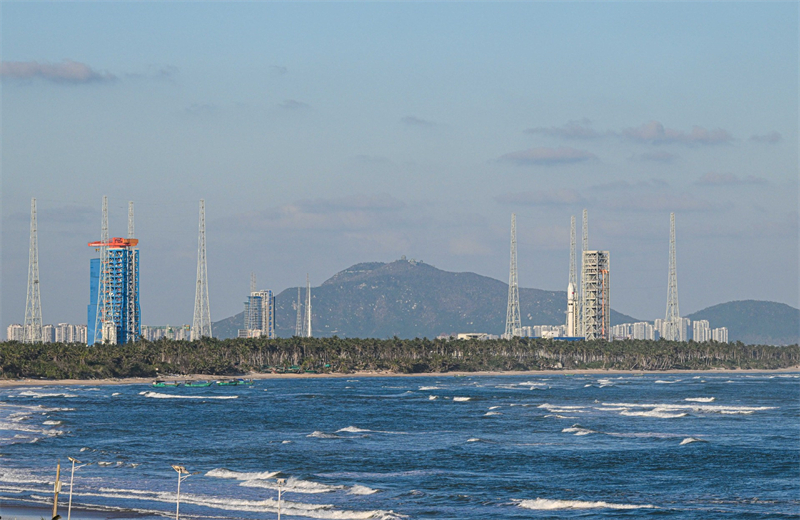Hainan launch center to carry out 2nd mission
China Daily, December 17, 2024 Adjust font size:

The Hainan International Commercial Aerospace Launch Center in Wenchang, Hainan province, is set to conduct its second mission, this time with a Long March 8 carrier rocket, according to the new spaceport.
In a brief news release on Sunday night, the center announced that the rocket was moved to Launch Pad No 1 on Sunday afternoon and is scheduled for liftoff in the coming days.
The mission marks the first launch from Launch Pad No 1, which is specifically designed to support the Long March 8-series rockets.
China Daily has learned that the mission, scheduled for next week, will deploy several satellites for the Spacesail Constellation network. The network currently operates 54 satellites in Earth's orbit, providing high-speed broadband internet services to users worldwide.
On Nov 30, the spaceport conducted its inaugural launch, which facilitated the maiden flight of the Long March 12 rocket from Launch Pad No 2.
As China's first spaceport dedicated to commercial operations, the Hainan International Commercial Aerospace Launch Center is a joint venture between the Hainan provincial government and three State-owned space conglomerates.
Launch Pad No 1 was completed in December last year, while Launch Pad No 2 was finished in June.
The commercial spaceport is the fifth ground-based launch facility in China and the first to be operated by a local government. By contrast, the Wenchang Space Launch Center — also located in Hainan — and the three other Chinese spaceports in Jiuquan, Taiyuan and Xichang are administered by the central government and primarily serve State-led programs such as lunar exploration and manned spaceflights.
Designed and built by the China Academy of Launch Vehicle Technology, a subsidiary of China Aerospace Science and Technology Corp, the Long March 8 rocket features two core stages and two side boosters. It is powered by six engines fueled by liquid oxygen, liquid hydrogen and kerosene.
The Long March 8 completed its maiden flight in December 2020 from the Wenchang Space Launch Center.
Capable of deploying various types of spacecraft into multiple orbits, the Long March 8 is primarily tasked with placing satellites in sun-synchronous orbits. This capability addresses the growing demand for launch services from commercial satellite companies in China and abroad, the academy said.